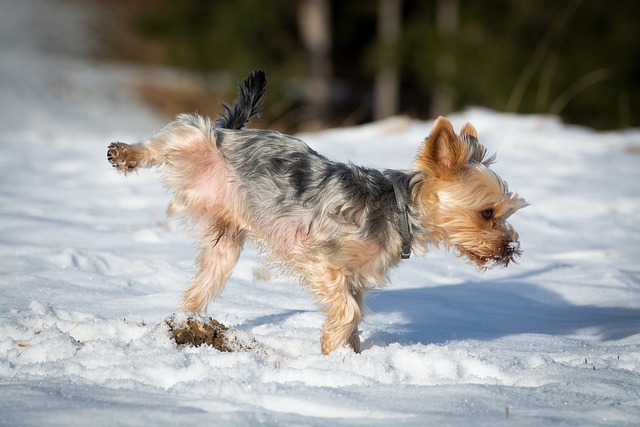Possible medical reasons for dogs peeing on the couch
Possible medical reasons for dogs peeing on the couch can be quite concerning for pet owners. Understanding these reasons can play a crucial role in identifying and addressing the underlying health issues that may be causing this behavior.
One possible medical reason is urinary tract infections (UTIs). Dogs with UTIs may experience discomfort or pain while urinating, leading them to associate the act with negative feelings. Subsequently, they may choose to urinate in alternative locations, such as the couch, to avoid the perceived discomfort.
Another possibility is bladder stones, which are mineral formations that can cause irritation and inflammation in the bladder. Dogs suffering from bladder stones may exhibit increased urgency to urinate, causing accidents on furniture or other unsuitable places.
Additionally, dogs with bladder or kidney infections may also urinate on the couch. These infections can cause an increase in urinary frequency and urgency, making it difficult for dogs to hold their urine until they reach an appropriate location.
Hormonal imbalances, such as Cushing’s disease or diabetes, can also contribute to dogs peeing on the couch. These conditions can affect a dog’s ability to control their bladder, leading to accidents in inappropriate places.
Lastly, behavioral issues should also be considered. However, it’s crucial to rule out any potential medical causes before assuming it is solely a behavioral problem.
If a dog is consistently peeing on the couch, it is essential to consult with a veterinarian for a proper diagnosis. This will involve a thorough examination, potentially including urine tests and blood work, to identify any medical conditions that may be contributing to this behavior. Once the underlying issue is addressed, appropriate treatment can be implemented to resolve the problem and prevent further accidents on the couch.

Behavioral issues that may cause dogs to urinate on the couch
, avoid using technical jargon, and focus on providing helpful and informative content to the readers.
Behavioral issues can cause dogs to urinate on the couch, which can be both frustrating and unpleasant for dog owners. Understanding these issues can help pet parents address the problem effectively and prevent future incidents.
One common behavioral issue that leads to couch urination is separation anxiety. Dogs with separation anxiety may feel distressed and anxious when left alone, causing them to relieve themselves on the couch as a way of coping with their anxiety. This behavior can be triggered by the owner’s departure or even by other stimuli associated with being alone, such as the sounds of the TV or the dropping of keys.
Another possible cause is territorial marking. Dogs naturally mark their territory by spraying urine as a way of leaving their scent. This behavior is more common in intact male dogs but can also occur in females. If a dog feels the need to assert dominance or limit the access of other animals or people to a specific area, they may urinate on the couch as a territorial display.
In some cases, inappropriate elimination can be a sign of a medical issue, such as a urinary tract infection or bladder stones. If behavioral or environmental factors have been ruled out, it’s important to consult a veterinarian to rule out any underlying medical conditions.
To address couch urination, it’s crucial to identify the root cause. For separation anxiety, gradually desensitizing the dog to being alone and providing them with engaging toys or treats can help alleviate their anxiety. Clean the affected area thoroughly with an enzyme-based cleaner to remove any lingering odors that may encourage repeat incidents.
For territorial marking, spaying or neutering the dog can reduce the behavior. Additionally, providing ample opportunities for exercise, mental stimulation, and establishing clear boundaries can help address the underlying anxiety or insecurity that leads to territorial marking.
Remember, consistency, patience, positive reinforcement, and seeking professional help if needed can go a long way in resolving the behavioral issues that cause dogs to urinate on the couch.

Frequently asked questions about dogs peeing on the couch
Frequently Asked Questions about Dogs Peeing on the Couch
1. Why is my dog peeing on the couch?
It can be frustrating and confusing when your dog starts peeing on the couch. This behavior may have several underlying causes, including urinary tract infections, anxiety or stress, territorial marking, lack of proper house training, or even medical issues such as bladder stones. It’s essential to rule out any medical conditions by consulting a veterinarian and working with them to identify the root cause.
2. How can I stop my dog from peeing on the couch?
There are several approaches to tackling this issue. Firstly, ensure your dog has been properly house trained through consistent and positive reinforcement methods. Establish a regular routine for bathroom breaks and praise them when they eliminate outside. Additionally, create a designated space for your dog with their own bed or crate. Cleaning the affected areas using enzyme-based cleaners will help remove any lingering scents that may attract your dog to pee again. If the problem persists, consult a professional dog trainer or behaviorist who can provide additional guidance.
3. How do I manage territorial marking?
Territorial marking is a natural instinct for dogs, especially intact males. Neutering or spaying your dog can help reduce this behavior. Creating a consistent routine of outdoor walks and playtime can also discourage marking behavior. Providing plenty of mental and physical stimulation, along with positive reinforcement training, can help redirect their focus away from marking.
4. Can anxiety or stress cause my dog to pee on the couch?
Yes, anxiety or stress can lead to inappropriate urination. Dogs may seek comfort by urinating on items with your scent, such as the couch. Identifying and addressing the cause of stress is essential. Techniques like desensitization, counter-conditioning, and anxiety-reducing aids can help alleviate anxiety and prevent inappropriate urination.
In summary, understanding the reasons behind your dog peeing on the couch is crucial for finding effective solutions. From proper house training and regular routines to addressing underlying medical conditions or anxiety issues, there are various approaches to managing this behavior. By implementing the appropriate strategies and seeking professional advice if necessary, you can successfully address this issue and enjoy a cleaner and happier home with your beloved dog.

Tips and strategies for preventing dogs from peeing on the couch
Title: Tips and Strategies for Preventing Dogs from Peeing on the Couch
Meta Description: Discover effective tips and strategies to prevent your furry friend from urinating on the couch. Follow these SEO-friendly suggestions and ensure a spotless and odor-free living space.
1. Establish a Consistent Routine:
Maintaining a regular schedule for feeding, walking, and bathroom breaks is crucial. Dogs need structure, so establish a routine that aligns with their natural bladder control.
2. Proper Crate Training:
Crate training can help prevent accidents and establish boundaries. Ensure the crate is comfortable and properly sized for your dog. Use positive reinforcement and never use the crate as a punishment.
3. Frequent Potty Breaks:
Take your dog outside regularly, especially after meals, naps, or playtime, to eliminate any possibility of accidents. Reinforce positive behavior with treats and praise.
4. Monitor Water Intake:
Limit your dog’s water consumption, especially in the evening, so they won’t have the urge to pee frequently. However, be mindful not to restrict their water intake excessively, as it can lead to dehydration or other health issues.
5. Proper House Training:
Train your dog to eliminate outdoors and reward them for doing so. Consistency, patience, and positive reinforcement are key to successful house training.
6. Use Deterrent Sprays:
Spray a pet-safe deterrent on the couch to discourage your dog from even approaching it. These sprays have a scent that dogs find unpleasant, serving as a reminder to avoid that area.
7. Maintain Cleanliness:
Clean up any accidents immediately using an enzyme-based cleaner designed specifically for pet urine. Avoid using ammonia-based products, as they can attract dogs back to the same spot.
8. Address Anxiety or Medical Issues:
Sometimes, inappropriate urination can be a sign of underlying anxiety or medical conditions. If accidents persist, consult a veterinarian to rule out any health issues and discuss potential behavioral interventions.
By implementing these tips and strategies, you can effectively prevent your dog from peeing on the couch, creating a clean and comfortable living space for both you and your furry friend.

Understanding and addressing territorial marking behavior in dogs
Understanding and addressing territorial marking behavior in dogs is essential for pet owners who want to create a harmonious living environment for their furry companions. Territorial marking is a natural instinct in dogs, where they urinate or leave scent marks to stake their claim on a specific area. While it is normal for dogs to engage in this behavior to some extent, excessive and inappropriate marking can become a nuisance.
To understand territorial marking behavior in dogs, it is crucial to explore the underlying reasons behind it. Dogs mark their territory as a way to communicate with other animals, asserting their dominance and leaving a chemical message behind. This behavior often increases during times of stress, anxiety, or changes in the household dynamic. Unneutered male dogs are more prone to territorial marking, as their hormones drive them to mark their territory more frequently.
Addressing territorial marking requires a multi-faceted approach. First and foremost, it is important to establish a consistent routine for your dog, providing them with plenty of opportunities for regular bathroom breaks. This can help reduce their need to mark indoors. Additionally, neutering or spaying your dog can help reduce their hormonal drive to mark. Positive reinforcement training can also be utilized to redirect their marking behavior to appropriate outdoor areas.
Furthermore, managing your dog’s environment can be helpful in addressing territorial marking. Limiting their access to areas where they tend to mark, such as blocking off certain rooms or using baby gates, can prevent unwanted marking incidents. It may also be beneficial to use specially formulated enzymatic cleaners to eliminate any lingering odors or scents that could trigger further marking behavior.
Understanding and addressing territorial marking behavior in dogs requires patience, consistency, and a proactive approach. With proper training, management, and environmental adjustments, pet owners can effectively address and minimize their dog’s territorial marking behavior, creating a more harmonious home environment for both the dog and the owner.

